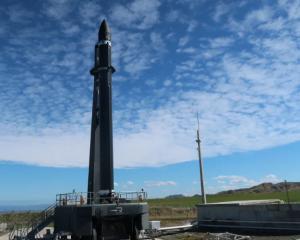
In the true moment of truth for Internet-Mana, Mana leader Hone Harawira's failure to hold on to the Maori electorate of Te Tai Tokerau has seen the cashed-up movement disappear into political oblivion.
Dotcom spent big on the party, ploughing just shy of $4 million into a political marriage of convenience.
But Internet-Mana failed to make more than ripples in the party vote stakes, and the decision by Harawira, who champions working-class values, to join an alliance with the controversial German backfired massively on the three-term MP.
Harawira's stance pre-election was that he was a victim of a plot to unseat him by the National and Maori Parties, all of whom endorsed Labour's Kelvin Davis in Te Tai Tokerau.
But it was the voters who spoke last night.
In an apparent backlash from voters in the upper North Island electorate, Harawira lost a substantial slice of his previously staunch support network, with hundreds of voters opting to back Davis instead.
Throughout the campaign Davis hit out at the arrangement between Harawira and Dotcom which would allow the Internet Party to piggy-back off a Maori electorate into Parliament.
The only other hope of Internet-Mana getting into Parliament was via Mana Party deputy leader Annette Sykes winning the Waiariki Maori electorate from incumbent MP and Maori Party co-leader Te Ururoa Flavell. Sykes officially conceded before 10pm as she trailed distantly.
While his German citizenship meant he was unable to stand, Dotcom bankrolled the party, reportedly spending $4 million setting it up and funding its campaign.
The Internet-Mana campaign was dogged with controversy, most notably Dotcom's "Moment of Truth" just days out from the election.
It had been hyped as an event to bring down Prime Minister John Key, with claims Key knew about Dotcom long before the raids on his Coatesville mansion in 2012.
The only alleged evidence of that was an email purporting to show Key was involved in a plan to get him extradited to the US.
The email, which was revealed by media before the event, was dismissed as a fake by those alleged to have written it.
The event did, however, raise serious questions about New Zealand's electronic surveillance programme, with NSA whistleblower Edward Snowden and US journalist Glenn Greenwald claiming Key was lying when he said New Zealand did not carry out mass surveillance on its citizens.
There has also been speculation about disharmony within the party's ranks, a leaked email showing Harawira's objection to a plan to promote cannabis law reform.
The party's press secretary Pam Corkery also provided perhaps the soundbite of the election, telling media to "piss off" when they asked about Dotcom's involvement in historical computer hacking.
The Internet-Mana Party's campaign promises included introducing a government-funded breakfast and lunch programme into low-decile schools; free tertiary education; building 30,000 new state rental homes within three years; higher taxes for the wealthy; an $18.80 "living wage"; and cheaper, universal internet.
Speaking on Radio New Zealand this morning Mr Davis said voters felt their electorate was "up for sale", because of the financial backing of Dotcom to Internet-Mana, and that had damaged Mr Harawira's personal brand.
"People were quite upset about it and [felt] that Hone had sold his values," he told the broadcaster.
His "positive" campaign on what he felt he could do for the electorate had given him the edge, he said.
Mr Davis also made it clear he had felt "absolutely happy with the level of support I received from the Labour Party," and leader David Cunliffe.
- By Matthew Theunissen of the Herald on Sunday














